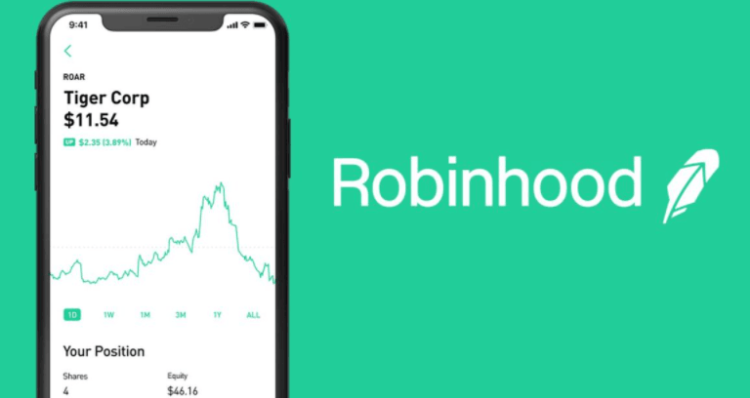Robinhood (HOOD), the US stock and crypto broker that debuted on the stock market last Thursday, has seen the value of its stock double.
The huge run-up in the price of the stock follows an inauspicious start to public life for the US trading app which has been at the centre of the trading boom among first-time retail investors in the US. Robinhood charges 0% commission for stock trading.
Seeking to capitalise on its popularity, co-founders Vladimir Tenev and Baiju Bhatt have taken the company public, but on its first day of trading the stock fell 8% below its $38 initial public offering price.
Nevertheless Robinhood has built a reputation as one of the best trading platforms for retail investors because of its cheapness and ease of use, although it stands accused of “gamification” – turning investing into a game, thereby failing to educate its users about the risks associating with trading and investing.
Capital at risk
From lacklustre IPO to booming stock price – buy Robinhood?
Explaining the apparent lack of enthusiasm at that point for the shares among retail investors was the thinking that its revenues were on shaky ground and the fact that it was facing a number of lawsuits concerning difficulties trading on the platform.
Most of Robinhood’s revenue comes from “payment for flow”, where prime brokers pay Robinhood for sending orders their way – this practice may be threatened by legislation and regulation in the future.
Also, Robinhood is being sued, for among other things, for suspending markings in popular meme stocks, allegedly leading to large losses for some investors.
Get Free Crypto Signals – 82% Win Rate!
But in the week since the IPO the stock has advanced as much as 126% from its lows, to close at $70.39 on Wednesday. With little in the way of catalysts to explain the bullish reversal in the stock’s performance, some were latching on to CNBC’s Jim Cramer who recommended a buy on the stock, even after its poor opening day’s trading.
From being at the centre of the meme stock craze around stocks such as Gamestop (GME) and AMC, it looks like Robinhood itself has joined the line-up of target stocks for the Reddit crowd that has fuelled the craze, in particular the WallStreetBets sub reddit.
Meme stocks are characterised by their volatility, with values often bearing no relation to stock fundamentals and instead driven largely by momentum trading among retail investors.
This appears to be what is happening with Robinhood stock. Cathie Wood’s ARK investment group bought the stock at IPO and will be sitting on sizeable gains.
Robinhood allocates large wedge to retail at IPO
The Robinhood IPO stood out from the crowd not just because of the brand power of its name but also the way it went about designing the IPO, with a very large 35% allocation to the retail market.
The management may have decided to go down that route as a sort of “thank you” to the small-time investors that have allowed the platform to expand so rapidly.
As it turns out the proportion of shares held by retail at close on the first day of trading was around 20-25%. The high proportion of retail investors trading its free float certainly help to explain its price volatility, with many more speculative traders joining in over the past couple of days.
Options trading behind volatility?
Yesterday was also the start of options trading in the stock, and this derivatives market can often lead to volatile trading in the underlying stock. A massive 329,000 options contracts were traded on Wednesday.
However, trading today has opened on a sour note for those who may have bought at what could turn out to be a near-term top for the stock. The stock is down 12% ($62.20) after news emerged of a filing by big institutional shareholder to sell 98 million shares.
Buy on this pullback?
But with Robinhood now firmly a member of the meme stock line-up, less risk-averse traders may want to enter their buy orders today as the price over the next few days heads for the next big round number – $100.
Looking to buy or trade Crypto now? Invest at eToro!
75% of retail investor accounts lose money when trading CFDs with this provider
Credit: Source link












































































































































